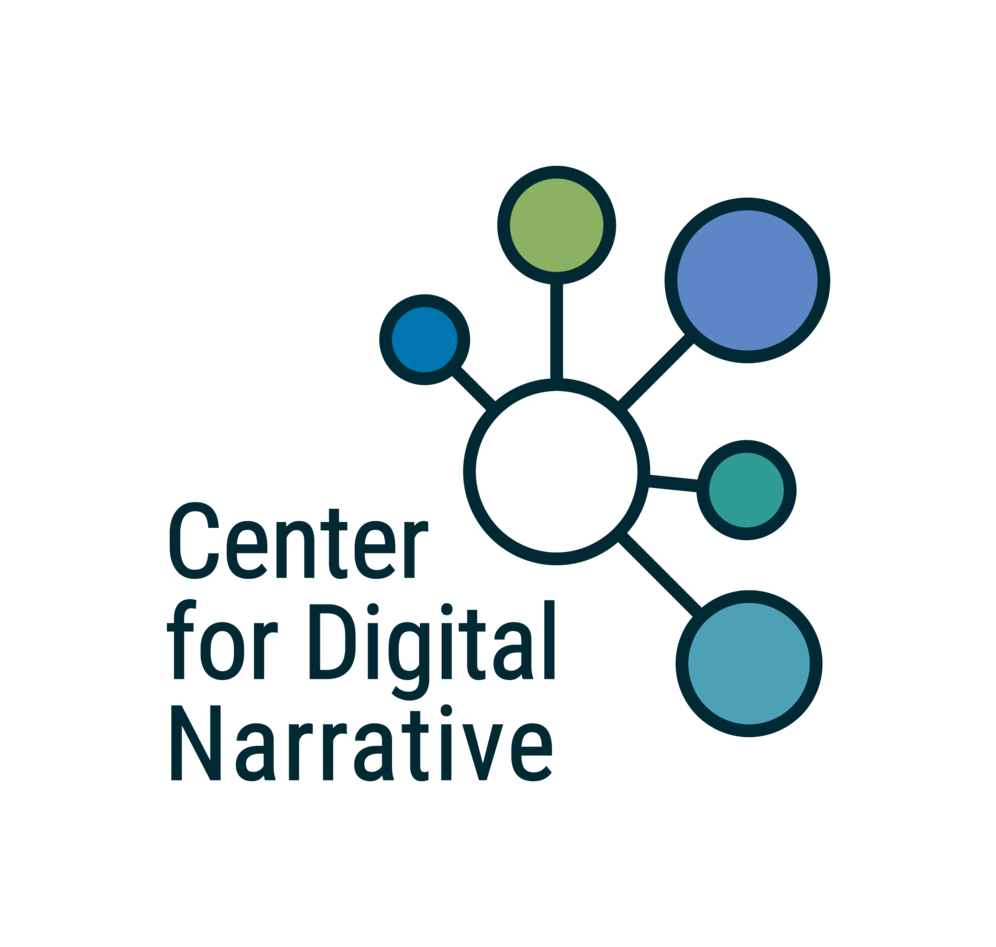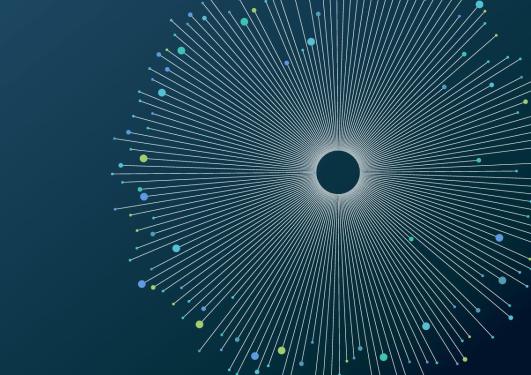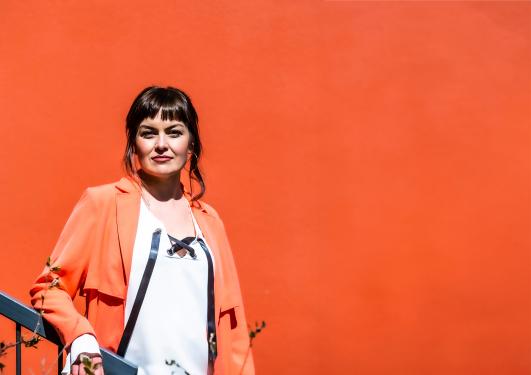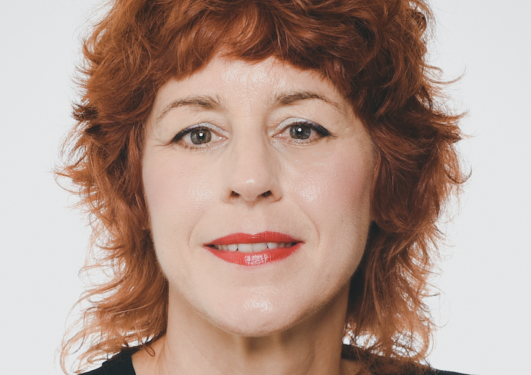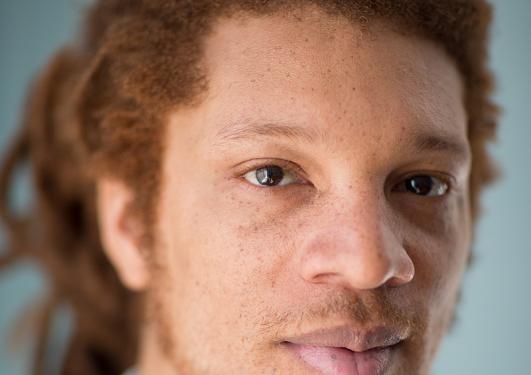CDN Digital Narrative PhD Summer School
The CDN Digital Narrative PhD Summer School will take place in Bergen 10 - 14 June 2025. On this page you will find all the information you need for the event.

Main content
The summer school has three main components.
Keynotes by Maria Mäkelä (Finland), Yudhanjaya Wijeratne (Sri Lanka), Alexandra Saemmer (France), and Fox Harrell (USA). See more information about the individual speakers below.
Feedback on writing: Students will share a draft of a chapter or article they are working on. Participants will be assigned to feedback groups that will work together each morning. Facilitators will include Jason Nelson, Kristine Jørgensen, Jill Walker Rettberg, Caitlin Fisher and other experts in the field.
Each participant will be asked to read all the drafts for their groups (6-10 people in each group) and to be lead respondents on two drafts. Each student will get 30-50 minutes discussion time for their draft.
Workshops: After lunch participants will choose one of two or more methods workshop options led by experts in the field of digital narrative. Each day there will be a choice between a creative and a critical methods course. Workshop convenors include Nick Montfort, Gabriele de Seta, Lin Prøitz, Scott Rettberg, Jason Nelson, Alinta Krauth, Caitlin Fisher and others.
Each workshop will be about a specific method that is relevant for the study and creation of digital narratives, e.g. within creative practice, digital humanities, narrative analysis or ethnography.
Keynote speakers
The keynote recordings are published in this Youtube playlist.
CDN Digital Narratives Summer School 2025

Keynote: Small Story, Grand Narrative – 10.06.2025 - 10.30–11.30, Auditorium A, Sydneshaugen Skole
Maria Mäkelä is a Senior Lecturer in Comparative Literature at Tampere University, Finland, and was the Director of Narrare: Centre for Interdisciplinary Narrative Studies from 2016-2020. Her research spans a wide range of topics, including storification, neoliberal narrative logic, and the literary tradition of adultery, covering media from 17th century French novels to contemporary fiction and corporate storytelling.
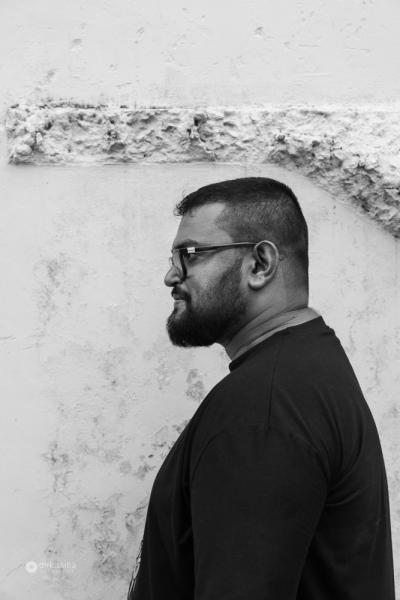
Keynote: The Machine as Provocateur: on apophenia, complex systems, and ourselves as cyborg storytellers – 12.06.2025 - 13.00–14.00, Auditorium A, Sydneshaugen Skole
Yudhanjaya Wijeratne is an author, data scientist and general tinkerer from Colombo, Sri Lanka. He is the co-founder and Editor-in-Chief of Watchdog, a research collective that works on fact checking, investigative journalism and community tech.
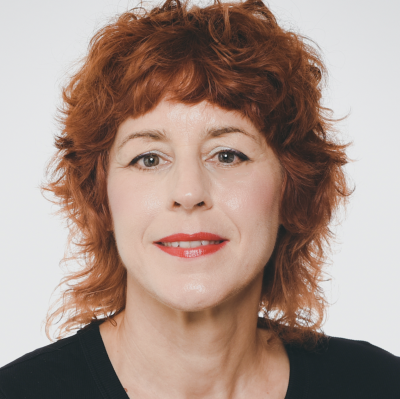
Keynote: Reading, writing and performing literary profiles – 11.06.2025 - 13.00–14.00, Auditorium A, Sydneshaugen Skole
Alexandra Saemmer is Full Professor of Information and Communication Science and co-director of the CEMTI laboratory at University of Paris 8, France. Her research focuses on socio-semiotics of cultural productions (texts, images, videos, websites, platforms), and digital literature. She is also an author of digital literature herself.
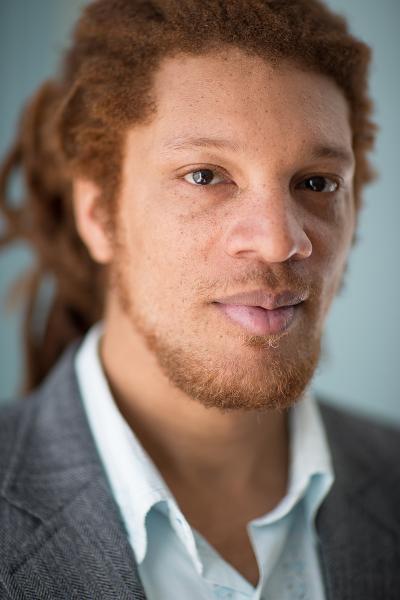
Keynote: Narrative Imagining, Role-Playing, and Computing for Prosocial Impact – 13.06.2025 - 13.00–14.00, Auditorium A, Sydneshaugen Skole
D. Fox Harrell, Ph.D., is Professor of Digital Media, Computing, and Artificial Intelligence at MIT in the Comparative Media Studies Program, Computer Science and Artificial Intelligence Laboratory (CSAIL), and Institute for Data, Systems, and Society. He is the founder and director of the MIT Center for Advanced Virtuality. He is a Nebula Award finalist and an Emmy Award winner.
Program Schedule
Welcome to the Digital Narrative Summer School! This week-long event brings together PhD students, researchers, and practitioners to explore the evolving landscape of digital storytelling. On this page you'll find the full program and essential information to help you prepare.
The summer school begins with registration on Tuesday, 10 June, from 09:00 to 10:00 at the Center for Digital Narrative (CDN), located at Langes gate 1–3. Most workshops and feedback sessions will take place at the CDN, while keynote lectures will be held in Auditorium A at Sydneshaugen skole. Lunch will be served daily at the Studentsenteret, just a short walk from the main venues. There will be a buffet and separate area for Summer School participants. We will also serve coffee, tea and refreshments during the day.
This Google Map link contains 6 of the relevant locations for all of the weeks events.
This page also has useful information about travelling and getting around in Bergen.
Tuesday, 10 June – Arrival & Orientation
The day begins with registration and a warm welcome from the organizers followed by the opening keynote by Maria Mäkelä entitled “Small Story, Grand Narrative”. After lunch, participants will be introduced to the workshop structure and grouped accordingly. The day concludes with an orientation to the feedback sessions and a welcome reception in the evening.
- 09:00–10:00 Registration at the Center for Digital Narrative, with refreshments
- 10:00–10:30 Welcome & Introduction at Auditorium A
- 10:30–11:30 Keynote: Maria Mäkelä
- 12:00–13:00 Lunch at Studentsenteret
- 13:00–15:00 Workshops, with refreshments
- 19:00 Reception at CDN, food and drinks
Wednesday, 11 June – Feedback & Excursion
The morning is dedicated to the first feedback group sessions, where participants will share and discuss their ongoing research. After lunch, Alexandra Saemmer will deliver her keynote “Reading, writing and performing literary profiles”. The day ends with a scenic boat excursion aboard the library boat - EPOS.
- 09:00–12:00 Feedback Group Sessions
- 12:00–13:00 Lunch at Studentsenteret
- 13:00–14:00 Keynote: Alexandra Saemmer
- 14:30–16:30 Workshop Sessions
- 17:30–21:30 Boat Excursion with EPOS*
*The boat will leave at 17:30 from the Dreggekaien, Google map, vegetarian food and drinks will be served aboard.
Thursday, 12 June – Deep Dives
Thursday continues with feedback sessions in the morning. After lunch, author Yudhanjaya Wijeratne will present his keynote. The afternoon is reserved for workshop sessions.
- 09:00–12:00 Feedback Group Sessions
- 12:00–13:00 Lunch at Studentsenteret
- 13:00–14:00 Keynote: Yudhanjaya Wijeratne
- 14:30–16:30 Workshop Sessions
Friday, 13 June – Synthesis & Celebration
The final day of the academic program begins with the last round of feedback sessions. After lunch, Fox Harrell will deliver a keynote on “Narrative Imagining, Role-Playing, and Computing for Prosocial Impact”. The afternoon wraps up with a final workshop session. In the evening, we’ll gather for a farewell dinner to celebrate the week’s achievements. Dinner will be a three-course meal at Ostra https://ostrabergen.no/ (Solheimsgaten 3, 5058 Bergen)
- 09:00–12:00 Feedback Group Sessions
- 12:00–13:00 Lunch at Studentsenteret
- 13:00–14:00 Keynote: Fox Harrell
- 14:30–16:30 Workshop Sessions
- 19:00 Dinner at Ostra
Workshop Descriptions
We are pleased to offer this selection of valuable workshops, emphasizing practical application and instructed by distinguished researchers renowned within their fields.
Mapping as Nonlinear Storytelling: a creative digital making/writing workshop
Tuesday 10 June, Center for Digital Narrative in Langes gate 1-3
Introduction
This workshop will provide participants with a hands-on introduction to rethinking game-making software for the wider applications of locative storytelling, augmented reality, and memory mapping. Participants have the chance to experiment with creative methods of production, firstly in non-digital locative formats, layering story on the landscape. Participants' outcomes will contribute to a digital project developed by the entire workshop class, where their site-specific digital writing contributions are added to an interactive game-based digital 'map' of our community. The final, collaborative project will be published by the digital art collective, Ephemerlab, and participants will be listed as contributors.
Learning methods/structure of the workshop
This workshop is based on an active learning model. First, participants are introduced to the theoretical basis of the topic. They will then participate in an individual outdoor activity involving locative story making. Participants will then come back together to learn how to implement these stories into Construct 3 - a game-creation software with a large range of affordances for digital interaction creation.
Items to bring
- A smartphone with reliable camera (or other camera equipment)
- A laptop (a tablet computer may also suffice)
Pre-workshop requirements
- Required: Please sign up for a Construct 3 account: https://www.construct.net/en/ . The free account tier will be used for this workshop. Requirements for running Construct 3: Construct 3 runs in your browser, on Windows, Mac, or Linux. We recommend Chrome or Firefox browser for smoothest use.
- Recommended: We also recommend you complete a few tutorials for Construct 3 in your own time, including the 'beginner tour' tutorial that will automatically appear on your Construct 3 account upon first entering. Please note, the tutorials are not required in order to complete this workshop. You can access further tutorials here: https://www.construct.net/en/tutorials/construct-3?flang=1Links to an external site. Here are some beginner tutorials that you might find interesting:
- The official beginner's tutorial: https://www.construct.net/en/tutorials/beginners-guide-construct-1Links to an external site.
- How to create touchable elements: https://www.construct.net/en/tutorials/touch-controls-detecting-13Links to an external site.
- Adding physics that makes items fall across the screen: https://www.construct.net/en/tutorials/physics-construct-basics-6Links to an external site.
Expected learning outcomes
- General knowledge about rethinking digital software, in this case a game engine, Construct 3, as an example of story-creation software;
- Hands-on experience in developing locative/site-specific storytelling;
- Hands-on experience in collecting and implementing creative data;
- Collaborative contribution to a published a work of artistic research.
Recommended Literature list
- Løvlie, Anders Sundnes, 'Poetic Augmented Reality: Place-bound Literature' in Locative Media, 2009
- Hargood, Charlie ; Millard, David E ; Mitchell, Alex ; Spierling, Ulrike, 'Authoring Locative Narratives–Lessons Learned and Future Visions' in The Authoring Problem, Switzerland, Springer International Publishing AG, 2023
- Rita Raley, 'TXTual Practice' in Comparative Textual Media, edited by Jessica Pressman, N. Katherine Hayles, University of Minnesota Press, 2013.
Workshop facilitators
Jason Nelson is Associate Professor in Digital Culture at University of Bergen, specializing in Electronic Literature and Digital Poetry. He is a PI in Artistic Research at the Center for Digital narrative. He has been creating weird and stimulating multimodal works for over 20 years.
Alinta Krauth is a Førstelektor in Digital Culture at the University of Bergen and has been a researcher and creator of digital narratives for over 20 years.
How to read a Hypertext: afternoon: a story
Tuesday 10 June, Center for Digital Narrative in Langes gate 1-3
Introduction
Michael Joyce's afternoon, a story is a work of hypertext fiction written in 1987 and published on diskette by Eastgate in the 1990s. It begins with the words "I want to say that I may have seen my son die this morning", and tells the story of Peter, who saw a car accident on his way to work. Afternoon is a classic work of electronic literature and is discussed or at least mentioned in hundreds of scholarly articles, but many people have not actually read it. In this workshop we will take time to both read and discuss the work.
Expected learning outcomes
Participants will become familiar with a pioneering work of electronic literature that is a key reference, but difficult to access, and will learn strategies for reading and interpreting hypertext fictions that are also useful for other non-linear literary works.
Literature list
Walker, Jill. Piecing Together and Tearing Apart: Finding the Story in “Afternoon”. Edited by Klaus Tochtermann et al., ACM Press, 1999, pp. 111–17. https://hdl.handle.net/1956/1073
There are hundreds of scholarly articles about afternoon. Choose one.
Workshop facilitator
Jill Walker Rettberg is professor and co-director of the Center for Digital Narrative. She is principal investigator of the project AI STORIES: Narrative Archetypes for Artificial Intelligence, which is funded by the European Research Council. Her most recent book is Machine Vision: How Algorithms are Shaping the Way We See the World (Polity Press 2023, open access). She began her research career with a fascination for hypertext fiction and has written several articles and book chapters on electronic literature. Jill's research blog is http://jilltxt.net and she is also active on Bluesky, LinkedIn and Mastodon.
AI Filmmaking as Visual Storytelling: A Creative Digital Production Workshop for Academics
Wednesday 11 June, Center for Digital Narrative in Langes gate 1-3
Introduction
This workshop will provide participants with a hands-on introduction to leveraging AI tools for innovative filmmaking practices, visual storytelling, and cinematic augmentation of theoretical presentations. Participants will experiment with creative methods of production, first exploring conversion of their research questions into prompts (then visuals), before transitioning to AI-assisted filmmaking.
Learning methods/structure of the workshop
This workshop is based on an active learning model. First, participants are introduced to the theoretical framework of AI-assisted filmmaking, and a practical example of lecturing with AI. They will then participate in an individual visual storytelling exercise involving scene/idea conceptualization. Participants will then learn how to implement these scene-ideas using whatever AI filmmaking tools exist at the time of the workshop – as the ecosystem is shifting the specific platforms will be decided as the workshop dates arrive. But the workshop organizers have licenses for Runway and Sora. Platforms that offer free test renders will also be explored.
Items to bring
- Flexible mindset
- A laptop
Pre-workshop requirements
Required: Begin to imagine the visual aesthetics and style of your research questions. Generate a few images or bring examples that are expressive of your intent and interest. How would you convey your thesis as a story? If your research was narrative, who/what would narrate it? Consider a future where PhD deliverables are fully multimodal.
Recommended explorations:
- Watch a few episodes of Curious Refuge: https://www.youtube.com/@curiousrefuge
- Memo Atken and Katie Peyton Hofstadter merge Touch Designer and ComfyUI to produce a multi-screen immersive video ecological-AI dance-poetry generative installation: SuperRadiance process video reveals how.
Expected learning outcomes
- General knowledge about reimagining AI tools as narrative filmmaking platforms that can enhance and augment theoretical persuasiveness in academic contexts.
- Experience in developing concise idea-specific visual storytelling.
- Potentially, capacity to relax into a tidal wave of inconceivable change.
Contextualizing Literature
- Crawford, Kate and Joler, Vladan, 'Anatomy of an AI System' https://anatomyof.ai/
- Benjamin, Ruha, 'Race After Technology: Abolitionist Tools for the New Jim Code', Polity Press, 2019
Workshop facilitators
David Jhave Johnston is a digital-poet writing in emergent domains: A.I., 3D, VR, and code. Author-programmer of the multimedia human + A.I. writing art-project ReRites (Anteism Books, 2019), the theoretical-history Aesthetic Animism: Digital Poetry's Ontological Implications (MIT Press, 2016), and many online multimedia literary explorations at www.glia.ca. He is currently employed as an Ai-narrative researcher at the UiB Centre for Digital Narrative from August 2023-26 on a team investigating Extending Digital Narrative.
- #whole-AI-use: Ecological genAI Proposal https://glia.ca/2025/wuai/
- Hallucinations are (almost) all you Need [June, 2024] An AI-generated audio-visual artistic-lecture about AI advances. https://glia.ca/2024/Hallucinations/
Scott Rettberg is an American digital artist, scholar, and professor of digital culture at the University of Bergen in Norway. He is a pioneering figure in electronic literature and digital arts, co-founding the Electronic Literature Organization (ELO) in 1999. Rettberg's creative works include collaborative digital fiction projects such as "The Unknown" (1999), which won the trAce/Alt-X Hypertext Competition, and "Kind of Blue" (2002). His scholarly work focuses on electronic literature, digital culture, and narrative theory. He is currently Director of the Centre for Digital Narrative.
Hand-Coded Text Generation using Templates and Markov Processes
Wednesday 11 June, Center for Digital Narrative in Langes gate 1-3
Introduction/description
This is a hands-on workshop in which all participants will intervene in computer programs by modifying the code. The session will begin with a very brief introduction to some classic text generators. Participants are strongly encouraged to review these beforehand at https://nickm.com/memslam so discussion of them can proceed quickly. After considering these, we will proceed by modifying existing computer programs. HTML5 pages with JavaScript will be available, as will Python programs that do the same thing. Changing these programs (for instance, by substituting our own strings) will let us craft our own text generators using simple but powerful and resonant methods. We’ll devise one template-based generator and one that uses a Markov chain or Markov process, a statistical technique that relates to more powerful methods (Large Language Models) widely used and discussed today.
Required
Have a text editor(not a word processor) installed.
Expected learning outcomes
Participants will have a working understanding or enhanced understanding of programming — seeing that code is ultimately a text that can be contained on one’s own computer, studied, edited, shared, etc. They will be able to create simple text generators and use this hands-on process to gain insight into a range of text generation processes.
Literature list
Memory Slam: Batch-Era Text Generation, https:/nickm.com/memslam
Output: An Anthology of Computer-Generated Text, 1953–2023, eds. Lillian-Yvonne Bertram & Nick Montfort, MIT Press & Counterpath, 2024. See especially the glossary entries for template and Markov chain and the examples listed there.
Workshop facilitator
Nick Montfort is a professor II at the University of Bergen and a professor at MIT. His work includes ten computer-generated books (in print from seven presses), the collaborations The Deletionist and Sea and Spar Between,and more than 50 digital projects. His latest poetry book, All the Way for the Win, is composed entirely of three-letter words. His MIT Press books include The Future and two co-edited volumes, The New Media Reader and Output: An Anthology of Computer-Generated Text, 1953–2023.He lives in New York City.
AI Philosophy, Remix and Collaborative Writing: Creating Platonic Dialogues with LLMs
Thursday 12 June, Center for Digital Narrative in Langes gate 1-3
Introduction
This workshop will provide participants with a hands-on introduction to leveraging AI tools for philosophical inquiry and collaborative writing. Participants will explore emerging philosophical frameworks for understanding AI while developing their own philosophical perspective through direct engagement with large language models. The workshop centers on creating a short essay/article in the form of a Platonic dialogue that unpacks emergent AI philosophy in directions determined by the student's research interests.
Learning methods/structure of the workshop
This workshop is based on a practice-based learning model. First, participants are introduced to key philosophical frameworks for conceptualizing AI consciousness, creativity, and ethics. They will examine recent philosophical thought concerning AI as well as view practical examples of philosophical writing with AI. Participants will then engage in an individual writing exercise involving the creation of a Platonic dialogue between two figures that explores a philosophical dimension of AI.
Plato’s dialogues are not just stories; they are vehicles for exploring philosophical ideas and concepts. Participants will learn how to implement these dialogues using contemporary LLMs. The workshop will utilize Claude and/or ChatGPT though students are welcome to use other, more customized systems such as OpenAI’s Playground.
Items to bring
- A laptop
- chatGPT and/or Claude (preferably subscription model)
Pre-workshop requirements
Required: Begin to formulate a philosophical question (or set of questions) about AI that connects to your research interests. Consider what philosophical traditions might help frame your inquiry (poststructuralism, postmodernism, feminism, Marxism, phenomenology, existentialism, accelerationism, critical theory, etc.) Who are the voices or perspectives you'd like to bring into dialogue? Draft 2-3 potential prompts that might generate interesting philosophical exchanges with an AI system.
Recommended explorations
- Consider how Joanna Zylinska's "AI Art: Machine Visions and Warped Dreams" might inform philosophical perspectives on AI creativity and consciousness
- Explore David Gunkel's take on Derridean deconstruction applied to LLMs in "Deconstruction to the Rescue"
- Engage with Betti Marenko's "FutureCrafting: A Speculative Method for an Imaginative AI" for provocative philosophical approaches to speculative AI through the lens of design fiction
- Read Mark Amerika's playful interactions with his Artificial Creative Intelligence as a model for collaborative philosophical exploration and dialogue
- Experiment with prompting an AI system to respond in the style of a philosopher you admire
Expected learning outcomes
- Introductory knowledge about emerging philosophical frameworks for conceptualizing AI and how these frameworks can enrich academic research
- Experience in developing practice-based research methods for engaging with AI systems
- Ability to create philosophical dialogues that explore complex questions through collaborative writing with AI
- Potentially, capacity to develop a philosophical orientation toward AI that goes beyond simply thinking about AI to thinking with AI
Contextualizing Literature
- Zylinska, Joanna. “AI Art: Machine Visions and Warped Dreams” https://www.openhumanitiespress.org/books/titles/ai-art/
- Marenko, Betti. "FutureCrafting: A Speculative Method for an Imaginative AI" https://ualresearchonline.arts.ac.uk/id/eprint/12597/1/FutureCrafting.%20A%20Speculative%20Method%20for%20an%20Imaginative%20AI_MARENKO.pdf
- Gunkel, David. “Deconstruction to the Rescue” https://outland.art/chatgpt-post-structuralism/
- Amerika, Mark. “Mark Amerika & ACI” https://outland.art/mark-amerika-aci/
- Optional: Craig, Carys and Kerr, Ian. "Death of the AI Author" https://papers.ssrn.com/sol3/papers.cfm?abstract_id=3374951
Workshop facilitator
Mark Amerika's artwork has been exhibited in many international venues including the Whitney Biennial of American Art, the Denver Art Museum, the Institute of Contemporary Arts in London, the Walker Art Center in Minneapolis and the National Museum of Contemporary Art in Athens, Greece. His last solo exhibition, "Mark Amerika. Remixing Reality. 1993-2023." was on view at the Marlborough Gallery in Barcelona, Spain. Amerika is the first artist appointed a Professor of Distinction at the University of Colorado where he is the Founding Director of the Doctoral Program in Intermedia Art, Writing and Performance in the College of Media, Communication and Information.
He is the author of many books including his most recent title, My Life as an Artificial Creative Intelligence (Stanford University Press 2022).
Qualitative Digital Methods
Thursday 12 June and Friday 13 June, Seminar room in the basement at the Humanities Library
Introduction
This workshop will provide participants with a hands-on introduction to a wide variety of qualitative digital methods: ways of doing in-depth, immersive, reflexive and participatory research about the digital. Digital media are increasingly used in social and humanistic inquiry in multiple ways: as research sites, as sets of tools, and as data. However, a major challenge researchers face is how to put qualitative digital methods in practice. In this 4-hour workshop, participants have the chance to experiment with, and reflect on, short methodological group exercises for qualitative digital research.
Learning methods/structure of the workshop
This workshop is based on experiential and reflexive group learning. The first hour is dedicated to briefly introducing qualitative digital methods and working through a variety of practical research “scripts”. In the second and third hour, participants will work in groups to follow a script of their choice, reflect upon the outcomes, and prepare a very short research report to be shared in the fourth hour.
Expected learning outcomes
- General knowledge about recent developments in qualitative digital methods
- Exposure to a wide variety of methodological approaches to the digital
- Hands-on experience in collecting and analyzing data about digital media and technologies
- Confidence in following methodological scripts and condensing outcomes into a self-reflexive account
Literature list
- Sandvig, C., & Hargittai, E. (2015). How to think about digital research, in E. Hargittai & C. Sandvig (eds.), Digital Research Confidential: The Secrets of Studying Behavior Online, MIT Press. https://direct.mit.edu/books/edited-volume/2285/chapter-abstract/59816/How-to-Think-about-Digital-Research
- Lury, C. (2018). Introduction: activating the present of interdisciplinary methods, in Fensham, R. et al. (eds.), Routledge Handbook of Interdisciplinary Research Methods. Routledge, pp. 1-27. https://wrap.warwick.ac.uk/id/eprint/117950/
- Caliandro, A. (2018). Digital methods for ethnography: Analytical concepts for ethnographers exploring social media environments. Journal of Contemporary Ethnography, 47(5), 551-578. https://doi.org/10.1177/0891241617702960
- Boe, C. S., & Mainsah, H. (2021). Detained through a martphone. Digital Culture & Society, 7(2), 287-310. https://mediarep.org/server/api/core/bitstreams/1a7037fc-400d-4ad0-947e-95fb66ae45be/content
Workshop facilitators
Lin Prøitz is a Professor II at CDN and Professor at Østfold University College. Her qualitative work is grounded in gender and feminist media theories and methods, including critical perspectives on affectivity and emotion in digital cultures.
Henry Mainsah is a Research Professor at Oslo Metropolitan University’s Consumption Research Norway (SIFO) institute. He conducts research interdisciplinary between the media studies and design, and his research interests include digitization, consumption, creative research methods, participatory design, and digital literacy.
Gabriele de Seta is, technically, a sociologist. He is a Researcher at the University of Bergen, where he leads the ALGOFOLK project (“Algorithmic folklore: The mutual shaping of vernacular creativity and automation”) funded by a Trond Mohn Foundation Starting Grant (2024-2028).
How to make a Magical Object: XR for Storytelling
Friday 13 June, Center for Digital Narrative in Langes gate 1-3
Introduction
This two-hour workshop introduces participants to the fundamentals of XR (Extended Reality) content creation using industry-standard tools (likely Adobe Aero and/or 8th Wall). Designed for students with minimal prior experience in XR development, but open to all, participants will gain hands-on experience creating interactive augmented reality experiences that can be viewed on mobile devices while being suggestive of storytelling for other kinds of displays.
We’ll begin with a very brief overview of some histories of XR narratives and platforms, especially as these relate to digital narrative. We’ll also engage with examples of XR content that will allow us to think about different viewing/reading situations, including XR pop-up books, room scale experiences, the impact of using 2D vs 3D assets and the place of audio in XR.
The bulk of the session will involve creating one or – time permitting - two small prototypes based on a template that will be provided to you. You will leave with a demo project in hand and the capacity to create additional projects.
Digital assets (images, 3D, audio) will be provided in advance for students who may not have access to these or time to develop their own, but participants are also invited to bring their own digital assets for use in their projects. If you’d like to do that, bring four or five files of each type: png (including some alpha images?) or jpg for still images, Mp3 M4a for audio, glb for 3d assets. Smaller file sizes work best. But don’t worry if you don’t have assets and have no idea what a glb is! By the end of the session you’ll have a good sense of what these assets are and an understanding of how to weave together images and text and objects and sound to create XR magic.
We’ll end with a brief show-and-tell and a wrap-up discussion to consider what working with the tools suggests about future forms – what are the limits of current tools? What are they missing? What can XR help us to think? What is your ideal XR narrative? What kind of narrative futures can XR help us to imagine?
Materials provided
- Temporary access to Adobe Aero and 8th Wall accounts
- Curated collection of AR poetry and narrative examples
- Narrative-focused 3D assets and templates
- Media assets for use in projects
What to bring
- Laptop
- Smartphone or tablet with Adobe Aero app installed
- Optional: Media assets or short text fragments of your own writing to incorporate into AR experiences
Expected Learning Outcomes
Participants will explore how extended reality technologies are transforming narrative structures, poetic expression, and reader engagement. By examining pioneering AR poems and stories, students will gain insight into the unique affordances of spatial storytelling.
Participants will also develop their own prototypes that will leave the workshop with a familiarity with key XR concepts and terminology, a basic capacity to navigate the Adobe Aero and/or 8th Wall development environments, and insight into the kind of stories that work well with existing XR technologies and possibilities for future forms.
Workshop facilitator
Caitlin Fisher is a professor at York University and Director of York’s Immersive Storytelling Lab.
Travel information and guide to Bergen
Download the Bergen Map and Bergen Guide: Bergen Map and Bergen Guide.
Events happening in Bergen: What’s on in Bergen.
Or simply enjoy the Norwegian nature around Bergen: Hiking in Bergen.
Many of the links below are to our local tourist office Visit Bergen, they are a trusted source for information on the city, events and accommodation.
Accommodation
We suggest Citybox Bergen City, Hotel Park, Scandic Byparken, Hotell Klosterhagen, or AirBnB. Here are lists of accommodation in Bergen.
Travel information
Insurance
The organisers will not accept liability for personal accident, loss, or damage to private property, which may be incurred as a result of the participation in the workshop or linked social activities. Participants are therefore advised to arrange appropriate insurance cover. Make sure the insurance also applies to cancellation costs.
By plane
Bergen is well connected to several major European hubs through frequent flights from Oslo, Copenhagen, Amsterdam, London or Stockholm. There are also direct routes from Paris, Munich, Zürich, Madrid, and Hamburg – and over 40 other destinations.
Local transport into town
- Tram: take the Bybanen directly from the airport to Bergen downtown. It takes about 45 minutes and you can buy a ticket either at a machine on the platform or through their app (called “Skyss”). One ticket lasts for 1.5hr, is valid on all trams and Skyss buses and costs approx. 4 Euros. Get off at the last stop, Byparken to get to the hotel/downtown.
- Airport shuttle bus (https://flybussen.no/en): choose route: Bergen lufthavn (Airport) Flesland to Bergen Busstasjon, for example. This costs about 170 NOK = ~15 Euros.
- A taxi will take 20min (more if rush hour) and will cost around 50 Euros (or more if outside 9:00-15:00 or on weekends).
By train
The scenic train between Oslo and Bergen takes you across the Hardangervidda mountain plateau and has iconic stops at e.g. Finse (the highest station on the entire Norwegian railway system, and location chosen to portray the ice planet in The Empire Strikes Back Star Wars movie).
Oslo-Bergen (430 km, 6 h 40 min; 6 daily departures)
From Sweden: Stockholm-Oslo (5h 59min if high speed; otherwise 6h16m), Gothenburg-Oslo (3h 39min)
More info on Norway Trains.
By ferry
Fjord Line runs a daily ferry between Hirtshals (Denmark) and Bergen, via Stavanger. See routes and times here.
There are also ferry connections between mainland Europe (Denmark, Germany, The Netherlands) and southern Norway (Kristiansand, Oslo). More info here.
Places to eat and drink
Bergen City of Gastronomy
Bergen City of Gastronomy builds on its thousand-year history as a meeting place and trading centre for local produce and unique culinary traditions.
Surrounded by the sea, deep fjords and high mountains and with ample access to fertile mountain pastures, the region produces first-rate produce from the sea and land.
Its rich traditional culinary culture and access to a great variety of produce from magnificent, pure surroundings provide the inspiration for creative and innovative cuisine. The Bergen region has a number of internationally renowned restaurants and a growing number of world-world-class chefs. Creative culinary artists who cultivate, develop and pass on local food culture and gastronomy, and who combine local produce, seasonal twists and creativity exquisitely.
Food tours
Combine beautiful nature and fjords with great cuisine.
A food tour from Bergen will give you a taste of local produce and an experience to remember.
One of the most popular food tours in Bergen is the Seafood experience at Cornelius Seafood Restaurant just outside the city center. Choose between visiting Cornelius for lunch or dinner. This restaurant is perhaps one of the best seafood restaurants in Norway. With local food and a beautiful setting, it has definitely found a winning formula.
If you would like to taste lots of different foods, join the tour “Food and culture guided walk”.
Restaurants
Bergen has a growing reputation as a city for great dining experiences. Access to first-class ingredients from sea and land, and a culinary environment where creative food artists can flourish, are two of the main reasons why Bergen has world-class restaurants.
In Bergen, the gastronomic experiences are in abundance, and you are guaranteed to find a restaurant that suits your palate. But with well over 250 eateries, it can sometimes be difficult to choose. We have tried to make it easier for you to find the right restaurant by giving you the opportunity to see only restaurants in these four main categories: Typical Norwegian food, sushi and seafood, restaurants with an international menu, pizza, exclusive restaurants with the best local ingredients. You can of course see the entire selection as well, that list can be found below the text in this article.
Pubs & Bars
The nightlife in Bergen is an experience of its own. Sit down at one of the bars with outdoor seating along the historical Bryggen or Fisketorget on a spring day and let the fresh sea air fill you with energy and inspiration.
Many of the buildings in this area have a lot of history from the Hanseatic times, when seafarers from all over the world left their mark on Bergen in general and especially Bryggen.
Bergen is well known as one of Norway larges student cities, and the student life has created a young, viral and compact atmosphere in Bergen city center. There is a wide range of everything.
